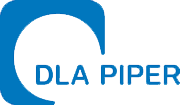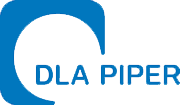Legal Alert: Chilean Competition Court resolves consultation initiated by Socofar

July 11, 2023 | By Marco Salgado, Sofía O’Ryan, Juan Cristóbal Ríos
On July 7, the Chilean Competition Court (“TDLC”) published its resolution regarding a consultation carried out by Socofar S.A. on the differential treatment granted by pharmaceutical laboratories to their public and private clients, and its possible conflict with fair competition rules, filed two years ago.
The TDLC’s resolution stated that it’s necessary to ensure that the price variation between the retail and institutional channels isn’t solely due to cost differences. Various factors can cause significant variations in retail prices, including:
(a) the absence of incentives for price-based competition;
(b) the fact that a significant part of the acquisition of medicines is generally made by direct purchase, under short-term contracts or in spot mode;
(c) the regulation that makes it mandatory to disclose the list prices of each laboratory and that limits the variables that may give rise to discounts; and
(d) the relevance that brands have in the decision of physicians, as a result of the promotional activity deployed by the laboratories towards them, and subsequently in consumers.
The TDLC determined that due to industry structure and characteristics, including information asymmetries and low substitutability of brand-name drugs, laboratories in the retail channel have market power. This is particularly true given the agents’ need for a variety of products. As a result, higher prices can be charged in the retail channel.
On the other hand, analyzing the institutional channel revealed the significant advantage of tenders, which operate as a medium to long-term purchase mechanism, allowing price to be prioritized as an awarding variable.
The resolution of the TDLC therefore establishes that pharmacies and drugstores can use bidding mechanisms for the purchase of medicines. This measure will not affect the obligation of advertising commercial policies contained in Resolution No. 634/2001, which will continue to apply only for spot purchases.
The TDLC rejected Socofar’s more invasive proposals, such as setting a maximum price or margin and implementing price equalization clauses. The TDLC believes that changes to the market’s structure should be made by the legislature, and some of these changes have already been included in the “Fármacos II” bill currently being debated in Congress.
Following this decision, those who provided background information during the consultation may file a claim before the Supreme Court, which will have the final say on the market conclusions and the applicable measures.
 |
Contact: For more information, please contact: Marco Salgado Partner msalgado@dlapiper.cl |
** This report provides general information on certain legal or commercial issues in Chile, and is not intended to analyze in detail the matters contained herein, nor is it intended to provide specific legal advice on such matters. The reader is advised to seek legal advice before making any decision regarding the matters contained in this report. This report may not be reproduced by any means or in any part without the prior consent of DLA Piper Chile.


